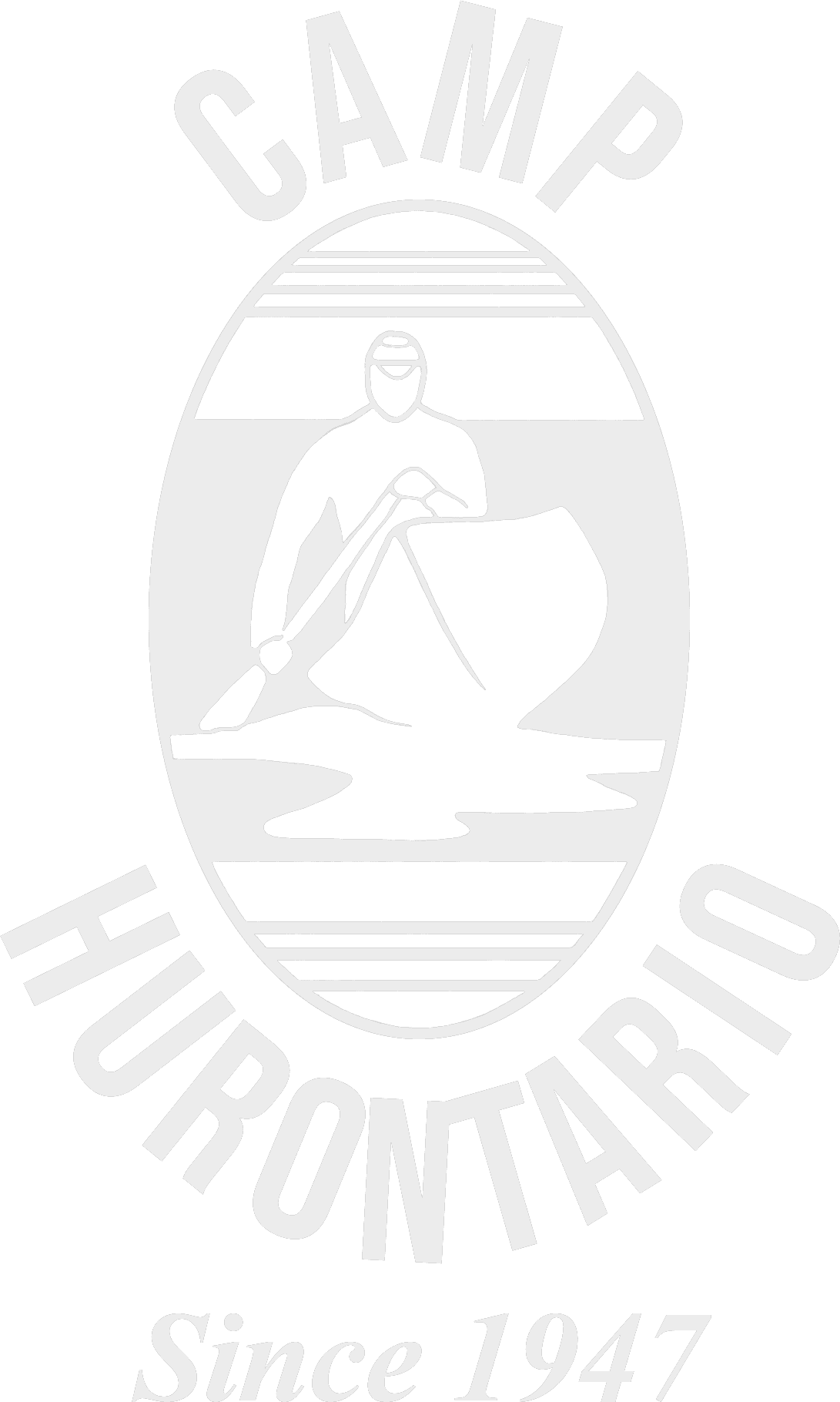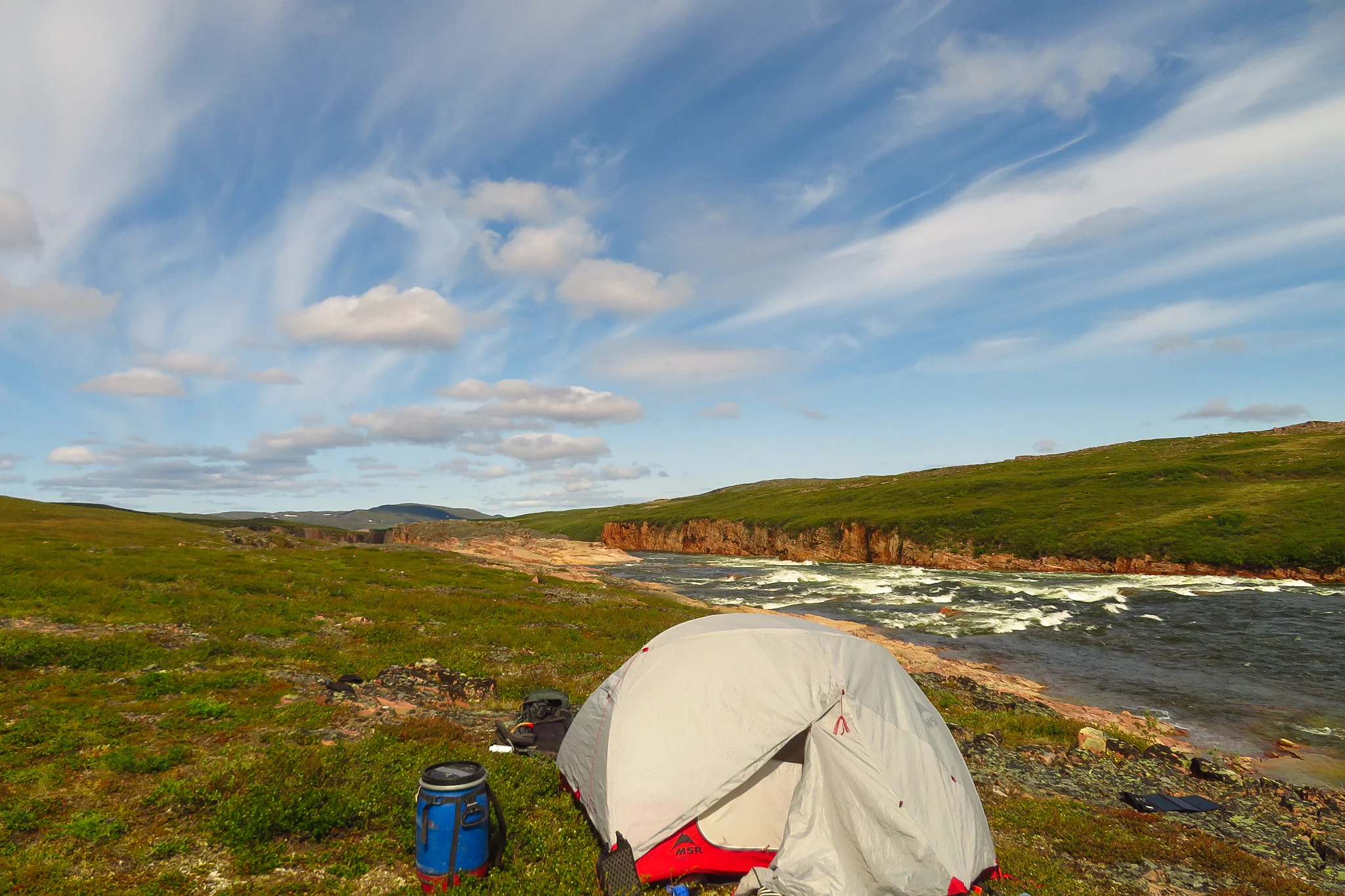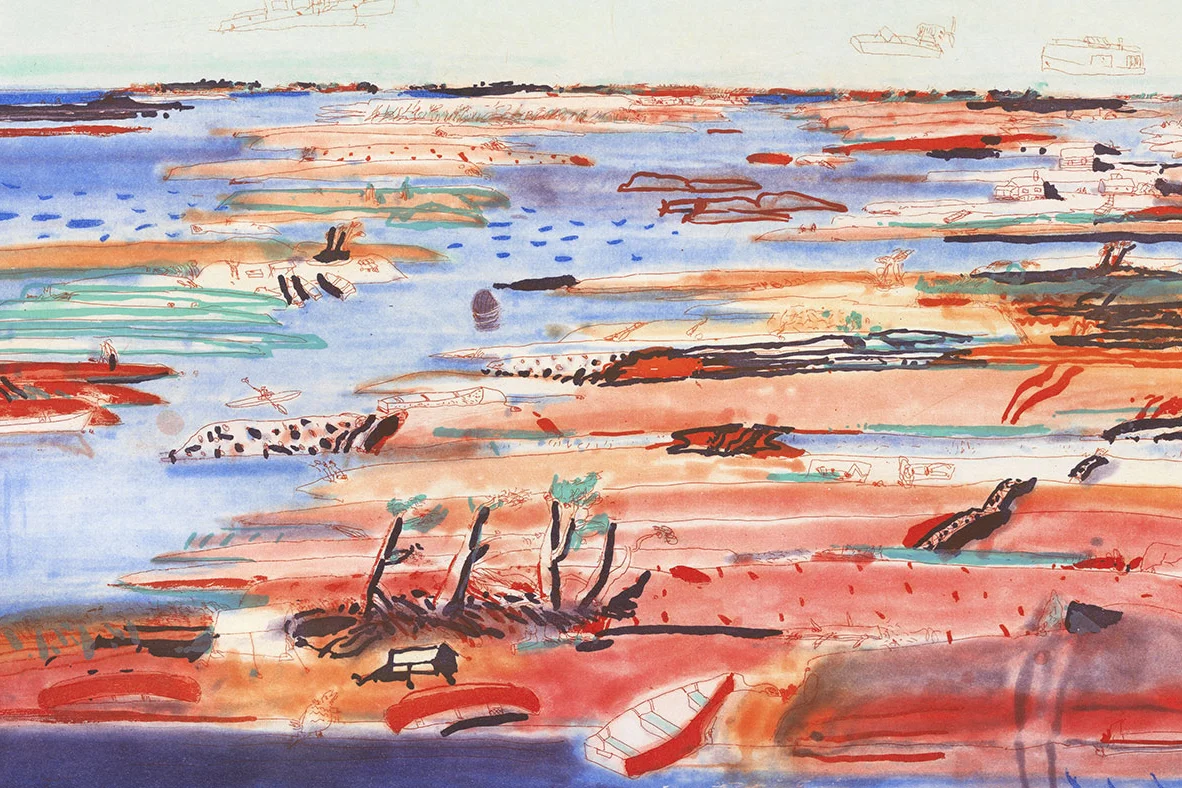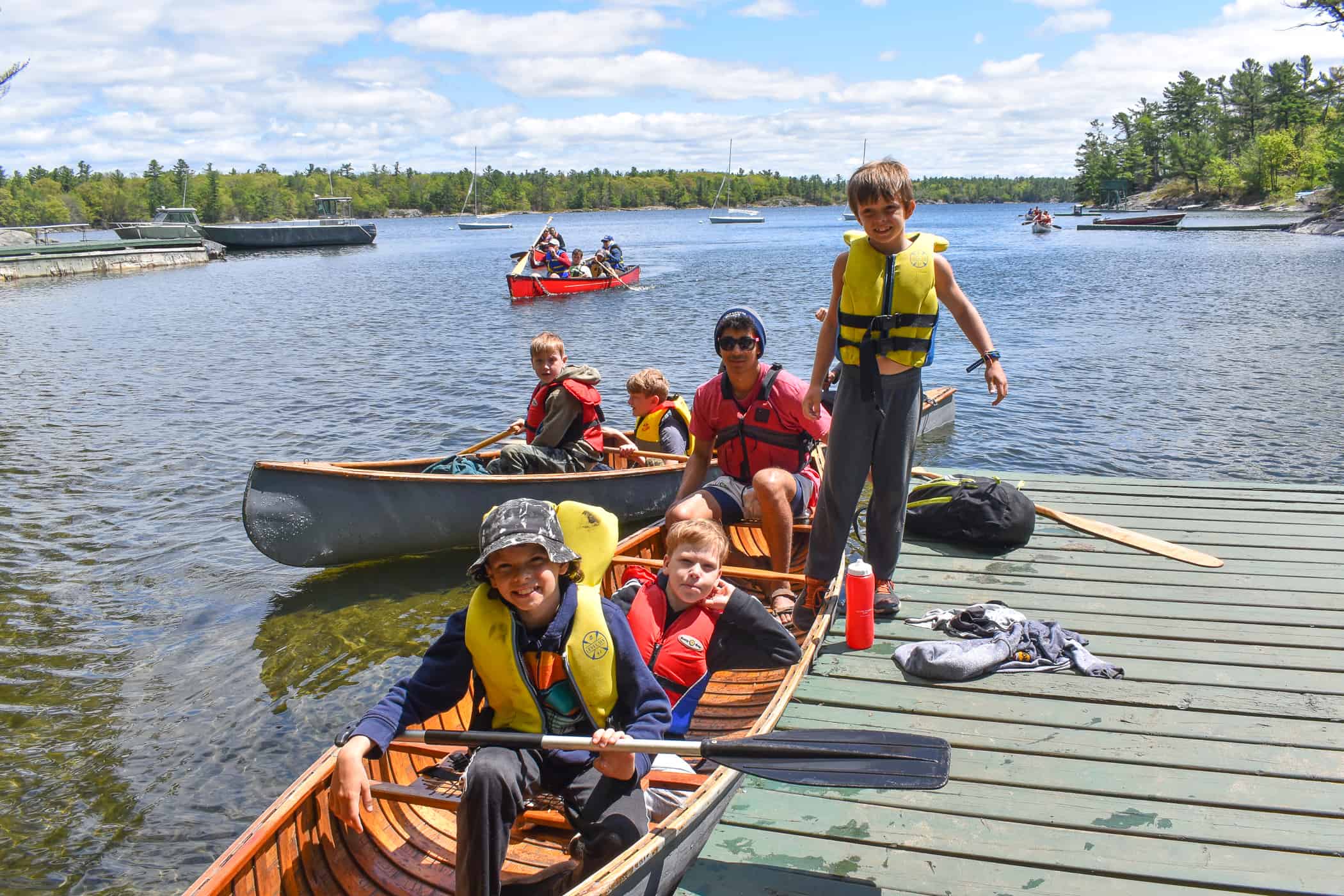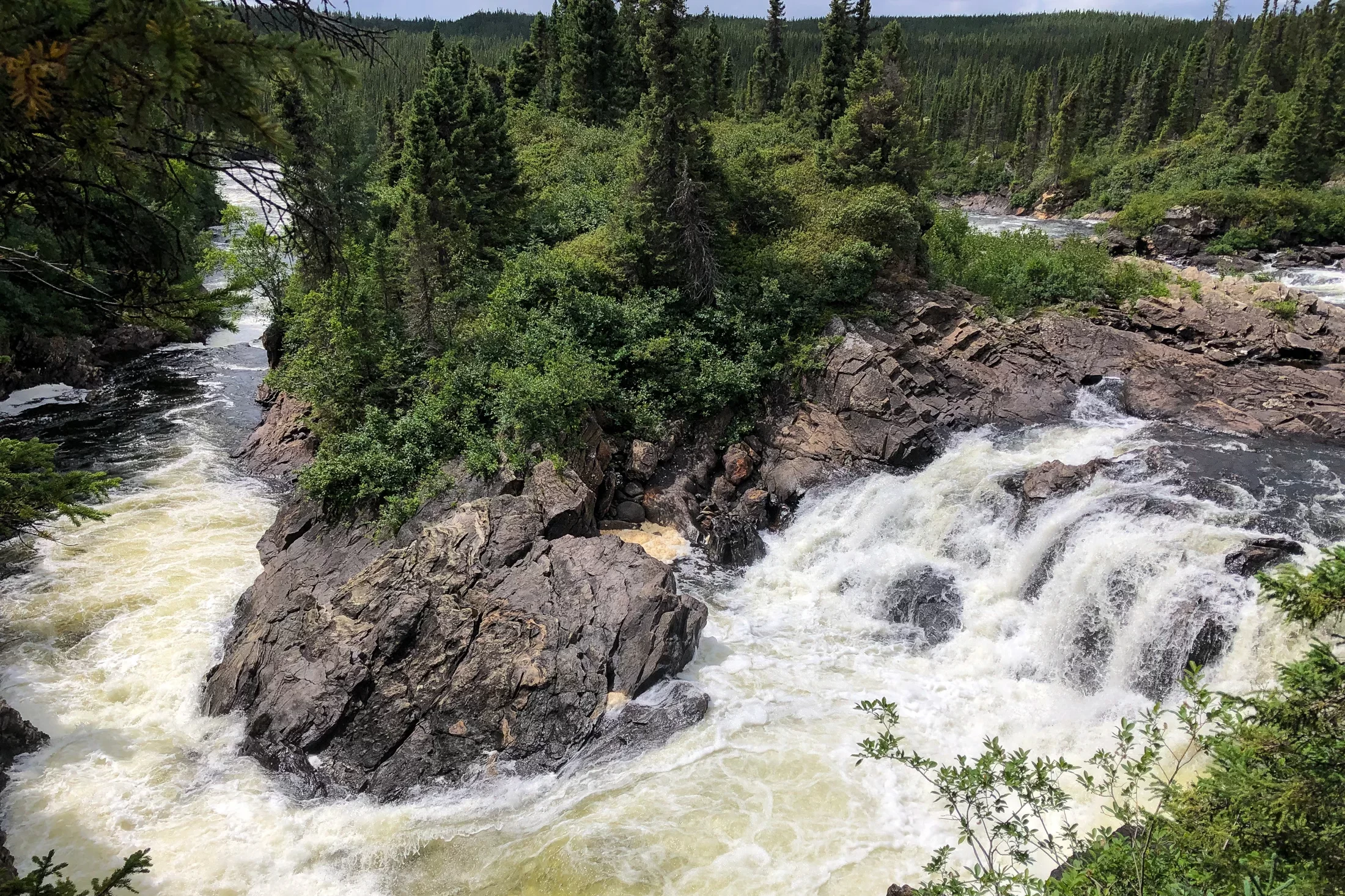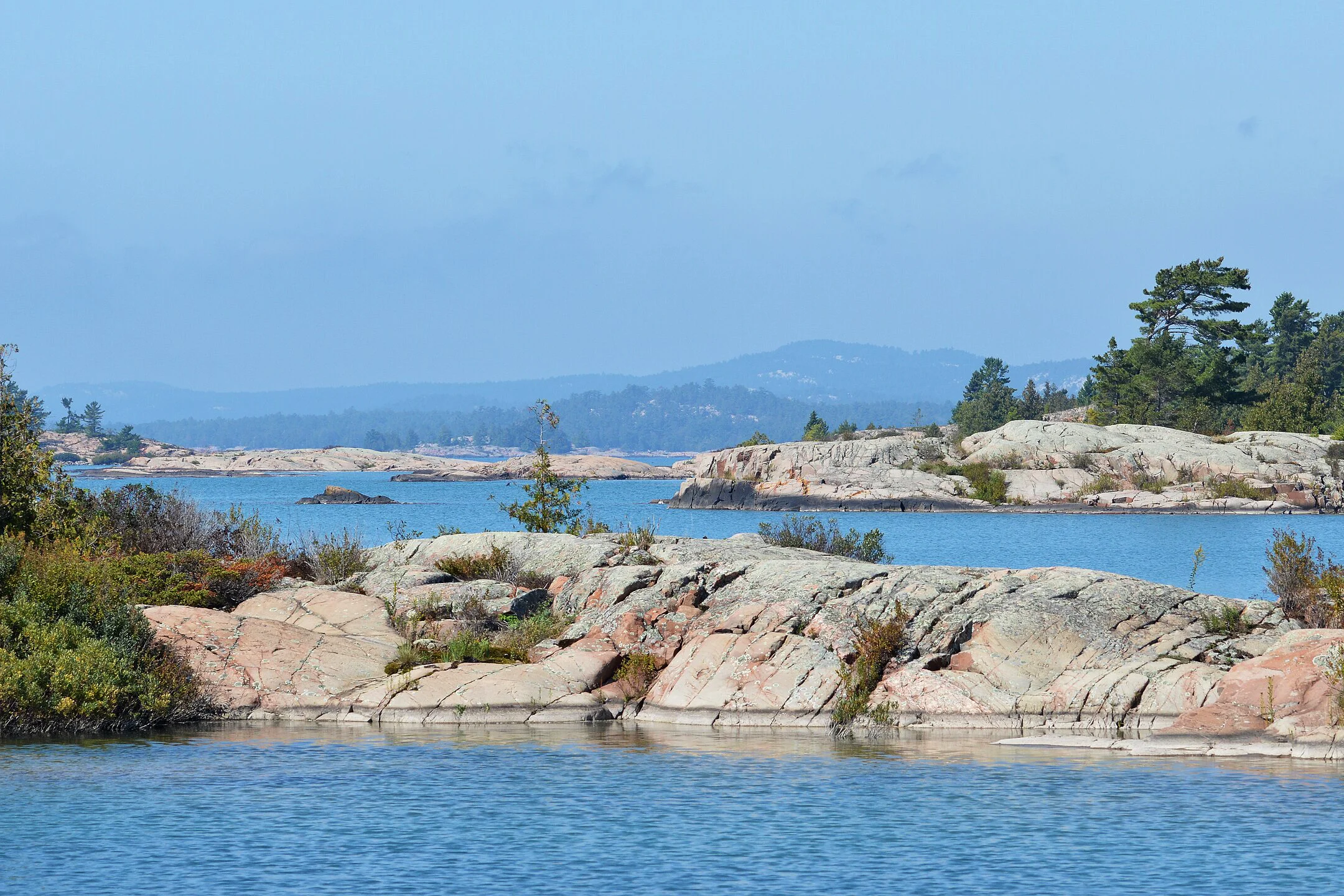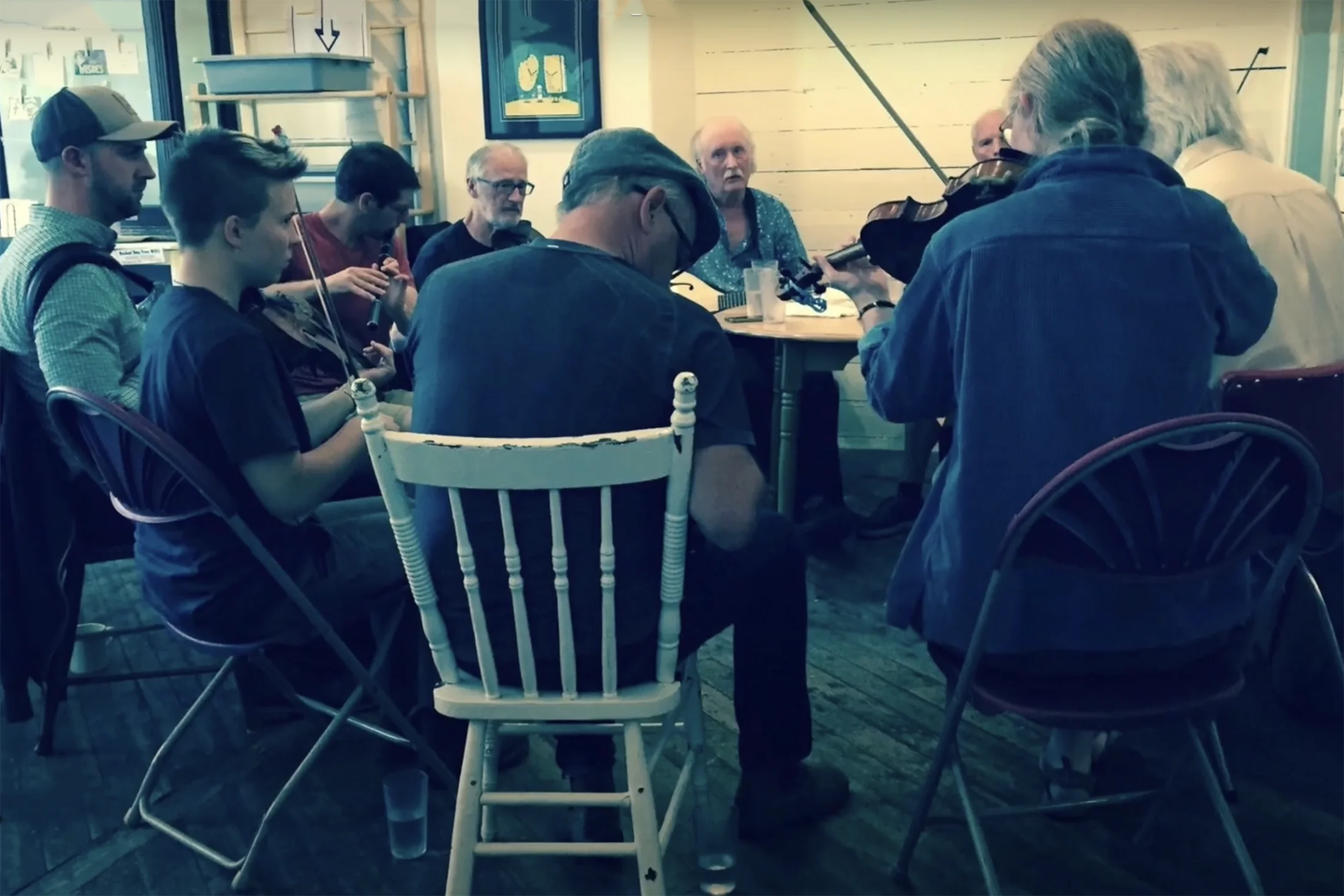Written by Rob Thomson (Camper and Staff, 1952-66)
Hello Pauline,
This is Rob (Robbie) Thomson, writing from Prince Edward Island. We’re house-cleaning a little, and I’ve been sorting through a file of written personal treasures. I came across a piece I wrote in 1997 — memories and observations about my 14 years of experience at Hurontario.
I think I probably wrote it at the prompting of Clair Campbell, who was compiling a book about the Georgian Bay. Her father Neil and I were in Group 1 together, and we have remained lifelong friends. Another fellow who was in Group 1 in 1952 was Ralph Heintzman with whom I reconnected a few months ago at the annual Symonds Medal occasion at Charlottetown’s Confederation Centre.
I’m now 79, starting to feel my age somewhat… looking back on what has been a wonderfully full life that has taken me all over the world. And I am very conscious that a lot of what I am and what I have been able to accomplish can be traced back to the formative experiences of Hurontario.
So, herewith, I share the ‘Reflections’ I wrote a quarter century ago.
Rob T
Reflections on Camp Hurontario
First written July, 1997
I went as a 7-year-old in 1952… missed one year when I was about 10 or 11… and finished off in 1966, I think, as a university graduate. Not quite: my wife Mar and I honeymooned there a bit in June of 1968.
Out of the millions of camps, why did I go to Hurontario? Because Birnie and Sylvia Campbell replied quickly to one of my mother’s mail-out inquiries to many camps, and because Hurontario had a discount rate for brothers (Jamie and me).
My mother was looking to kill a couple of birds with one stone: after a year of widowhood, to give herself a break from single parenting and to give her two boys some masculine connections. It worked, and we went back year after year.
Arrival at Camp
Picked up from the Midland City at Manitou Dock by Birnie and Helen in the original camp launch… had to step gingerly across the main T-dock which was being rebuilt after the first dock (built without cribs, I guess) had disappeared with the ice. For the first while, whenever we had roast beef or ham, Mrs. Hodgetts would stop by our table to help me cut my meat.
I’ve just quit riding the Prince Edward Island ferries (because of the Confederation Bridge). They reminded me of the trips on the Midland City and later the Penetang 88. Kids on the ferries spent their time in recent years playing the video machines… but I can’t remember how we occupied ourselves for the hours it took between Penetang and Manitou.
One year, as camp closed, the Midland City broke down and was about four hours late; buses got into Toronto after midnight, I think, and I got an unexpected stay in the Ford Hotel. A couple of years later, soon after the shift to Parry Sound and the use of Scott’s/MacIsaac’s boats, bad weather forced a hold-over: scores of young people had to be put up overnight in the Brunswick Hotel. That night we all went to see Tony Curtis and Kirk Douglas in “The Vikings”, the music of which is still in my head.
Georgian Bay Magic
Why does the Georgian Bay have magic for people? First guess: it’s so elemental: rock, water, sky… with trees and bushes and flowers clinging precariously but tenaciously to very little in the way of sustaining security. Symbolic of life, or what?! Sure, there’s beauty: my eyes water to think of it. But it’s not really ‘beauty’ because of the stark and even threatening nature. For me the feeling is more awe. There’s a feeling akin to standing alone on the prairies and feeling very small and vulnerable in a majestic but somewhat overpowering surround. I recall looking up into limitlessly starry heavens and being awed… but I have even stronger memories of paddling in the open… looking a half-mile to the right and seeing a vein of quartz disappear into the water, then a half-mile to the left and seeing it wave itself up out of the water again, a reminder of millions of years of geological age… looking down and seeing ghostly pale shadows of a shoal, then nothingness: a touch of scary tinging; a whole lot of wonder.
I always marvelled at the dramatic fluctuations in water level. A strong west wind could push an extra six inches of water into camp, enough to float a poorly beached canoe. In the years following 1952, when you could take a motorboat through Loon Portage, the water drained further and further away from the high-water mark left indelibly on the rocks until you could see that once the water had been five feet above where it was.
That fluctuation caused a serious threat in the early sixties. Early one summer a man started building a cottage on a point of the mainland within the camp bay. Flabbergasted, Birnie confronted him and found he had actually bought the property. How was that possible when the Camp owned that whole stretch of mainland? Because an earlier map showed that point, jutting out from a relatively low-lying connection, as an island.
Kerry Baskey, Bogey, Nick Ahern and I went out — twelve miles, I think it is, into the open — to the Western Islands in the mid-afternoon. They were reputed to be an amazing nesting place for blue herons and other birds. They sure were. As we went, there was an almost total eclipse of the sun, and as it progressed, the birds flocked from the mainland back to their roosts for what they thought was night coming on.
Life as a Camper
Are kids still so fascinated with raw nature? As youngsters I think almost all of us genuinely revelled in the rambles and wadings through bush and swamp, seeing with our own eyes that there were carnivorous plants and getting startled by the rattle of a Massasauga. But we even got a big kick out of what were the only Saturday-night movies in the early days: Winston Hibler narrating Walt Disney nature documentaries such as The Living Desert, with the magic of time-lapse photography of flowers opening.
In the very early 50s there was a regimen to make us think very concertedly about character, duty and other semi-spiritual elements of life. When breakfast was done, Birnie would introduce a theme, plant a few thought-provoking questions, then turn on the record player with a hauntingly gentle melody (which I still hear in my head — it was Frantisek Drdla’s “Souvenir”) and have us put our heads down on our arms on the table… and meditate.
Sunday chapel was not only painless; it was rather good. The sermons were good human-relations and pantheistic stuff, with much of their impact deriving from the lessons of nature we witnessed through the week and indeed could literally see from our seats around the Flagpole. Sunday-morning laundry was almost always a genuine pleasure: give me a bar of Sunlight soap and a flat rock and the easy comfort of a circle of friends just chatting.
Kraft Dinner with canned tomatoes, Lipton chicken noodle soup, a peach upside-down cake done (or partly done) in a reflector oven… Picking blueberries and taking them to the kitchen so that Tada could cook a pie for our group.
Fun in the water: Behind the curtain of Moon Falls. Gunnel-bobbing. Shooting The Blue Chutes on the French River. Through the underwater tunnel on Deer Island. Dock tag around the cribs of the Main Dock. Spookiness in the water: the ghostly, green-grown timbers of the Wabuno at Wreck Island.
Mid-1950s on the Moon River. We stopped for lunch and a swim at a dirt road which crossed the river by a Bailley bridge (temporary army bridge). There was a big steel culvert which we rolled up onto the bridge. Who cared that we were all naked and blocking the road: we were in the middle of nowhere, right? Woops, a car came… so we all dashed around to the other side of the culvert pipe. And a car came from the other direction! We dived into the river, and the counsellor had to get up from cooking lunch and roll the culvert off the bridge. It’s a little busier today, that road: it was the Trans-Canada Highway being punched through the bush south of Parry Sound.
There were memorable train rides between Sarnia and Toronto and Parry Sound… and north from Parry Sound to the French River. Big thrill: flushing a pop bottle out the toilet while traversing a high trestle.
Memories about electricity: the throb of the pumphouse in the evening… Early conservationist Sylvia Campbell making the late-evening trek through the central part of the camp to turn off any wasteful lights… Birnie’s wonderful sermon about different ways of approaching things based on the metaphor of the Lister and the Shepherd generators… the excitement, tinged with some regret about the passing of an era, as they blasted rock and put up the poles to bring hydro-electricity into Hurontario.
The old songs: the Whiffenpoof Song, You can’t get to Heaven, Swimmin’ Without Women, the Camp Canoe Trip Room (Quartermaster’s Store), Ich bin der Musikant, Birnie singing The Bowery, Harry Belafonte and the Kingston Trio stuff… and the one that can still bring a moistening to my eyes when I sing it biking to work, Up in the Islands.
Memories on Staff
A person could have a huge variety of experiences over the years. I counselled, I built cabins, I repaired and built boats, I drove the first water-ski boat (lasted about two days before I was bored and asked for a switch). Most of one summer I spent on Birnie’s National History Project, evaluating textbooks at a desk in the Gas House and interviewing campers over Tang-and-cookies to assess their awareness of Canadian history and the sources of their knowledge.
One became a ‘real man’ as you grew from camper through CIT to full staff-person. One of the signs of that happening was unloading the Trimac when it brought in the summer’s initial stock of food supplies. What a feeling: putting a 100-pound bag of flour on your shoulders and showing people you could almost scamper up from Flagpole Point to the storeroom behind the kitchen.
The excitement and terror of asking a waitress out for an evening paddle. Cathy MacLean responded to my “Would you like to go for a paddle?” with “I’d love to, Rob, but I don’t really want to”.
Practical joke fun. Ross Hodgetts was at camp to show off his new bride Daralyn. A special sailing race was arranged for the returning Pinchin victor of yesteryear. We rigged the boat draw, so that Ross got the snipe to whose centreboard I’d attached a 25-pound anchor hanging underwater by five feet of rope. Ross got a perfect start… then watched in mounting frustration as every other boat slipped past him over the next fifteen minutes.
Boathouse parties, especially before campfires when we were trying to script and learn a skit. Kerry Baskey introduced the technique that would be used for years of skits: the narrator related that Cinderella was left home alone, stomping the pad in anguish… and Kerry pounded his feet on the ground, petulantly repeating “stomp, stomp… anguish, anguish”.
Most foolish party preparation ever: I think it was to be a good-bye for Ross and Daralyn Hodgetts. We decided it should be a Christmas party. We needed a tree. Bogey said he knew where the really perfect ones were… we had to go all the way down to the inland lake at the foot of the bay. So, he found one: the four-foot top of a forty-foot pine which we had to chop down. Hmmph… some biologist, eh!
Walking to Iron City for the annual baseball game… and also to use the telephone to find out your grade XIII marks in early August.
Naming places. Some were the creation of legends around mythical heroes — Phil-Joe and the DRC. Some were pure fluke and of rather little depth. A staff cabin I helped Andy Hamelin build came to be the DGH… why? Because I kidded Andy about the open-air pattern he got from a more prosaic building he had done the previous year: this cabin was simply a “Deluxe Garbage House”.
Why were horses called horses? I know I watered them for a summer, but what was the origin of the expression?
The sound of flying squirrels hitting the roof and running the length of the boathouse… gulls, especially after the dumping of garbage… the excited late-afternoon cry “Transport!” to call the GH&T CITs to unload.
Games: kick-the-can, capture the flag… later, liar’s dice — learned from Luke Sewell in a tent by the Post Office. (On a somewhat higher plane, Luke also introduced many of us to Khalil Gibran’s “The Prophet”.)
Campfires. The skits, the songs, the tricks like mysterious fire-starting — 35 years later I found that they all still worked wonderfully with 1990s Wolf Cubs.
Using campers to move rocks — collecting them in various little bays, throwing them into the barge while boys took turns riding the aqua-board behind the camp launch. Everyone in camp spending a quarter-hour carrying rocks from the barge to the low spot in front of the office as fill for a sea-wall… Flagpole Point covered in red and grey canoes as a hundred campers sanded off that year’s coat of paint.
I suppose I was in my late teens and had been a staff member for a half-dozen years before I consciously realized that Hurontario, in Birnie Hodgetts’ scheme of things, was not just for — nor even, perhaps, primarily for — campers, the boys from 7 to 14. More importantly it was for teens as we came, through being counsellors and other staff-members, to learn responsibility and leadership and self-reliance.
Memorable People
Leo Leblanc, who carried a refrigerator on his back, with tumpline, up from the central beach to the kitchen… Tada and Toyomi, of course, and Mike and Rino: a kitchen-full of people whose lives had been so altered by the second world war… Tom Lawson, campfire-runner extraordinaire… Luke Sewell, Knobby Noble, Dave Dawson… Andy and Jean Hamelin.
Nine O’clock Lake: Neil Campbell catching a 20 ½ inch bass… catching two fish at once on a jitterbug.
An example of skills of the local people who lived with the Bay: Cap driving the Trimac through the gap into Sandy Bay to offload gasoline at the Gas House, riding the prop over two shallow rocks on the boost of his own stern wash.
Half-dozen of us spent a Mantovani-Room evening chatting with, and an afternoon of actual painting with, A.Y. Jackson. At 80 he clutched the brush in an arthritic claw, but — son-of-a-gun — his work at the end of the afternoon was somewhat better than mine.
Lasting Influences
What were the lasting influences and effects of Camp Hurontario on someone like me? An awe for the natural world, interest in art, woodcraft skills, woodworking/carpentry and repair skills, thoughtfulness — yes, thinking about things instead of taking it all for granted: becoming conscious that there were problems and issues and wonders and feelings beyond the immediate physical present… having to plan, imagine and question, consider implications, think of others.
Exposure to other kinds of people and types of life: discovering people with rustic northern skills on the one hand… and urban sophistication on the other, people with artistic skills and sensitivity, people of different nationalities — Japanese, Italian, Ukrainian — who indicated there was a world wider than the one we knew in rural Canada.
A sense that the key elements of life are relationships with (i) the physical environment we live in and (ii) the social environment of other people we live with.
Here’s what I wrote Birnie in 1987 shortly before he died:
“The point is that — as is probably true for literally thousands of others who are now helping in their various ways to make Canada a decent and promising place to live — I am, to a pretty considerable degree, a product of influences you created.”

